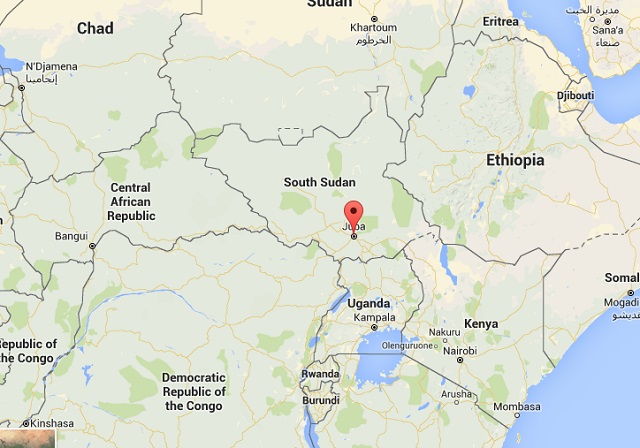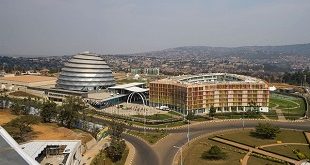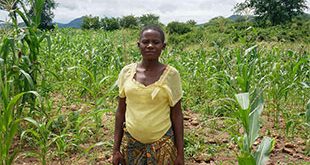
Last year, famine was declared in Leer, triggering a massive airlift of emergency food that mitigated the worst of the starvation.
But hunger remains.
“We need to take food to where hunger and hungry people are before they are cut off due to the rainy season. With the start of the rains, the situation will become extremely dire,” said the WFP’s Adnan Khan.
The impending rains will make travel overland all but impossible, washing away the few seasonal roads.
“Access then becomes our biggest challenge and it’s only possible by air,” said James Mat Gai, programme director of Nile Hope, which runs the hospital where Nyakol is being treated.
– Nowhere to run –
Renewed fighting is also a predictable threat to the refuge of Touch Riak.
Makuil Puok, a 25-year-old patient lies on the floor, hunched in pain and breathing heavily. His lowered trousers reveal a gunshot wound in his buttock, sustained as he tried to make the journey to safety.
“I tried to cross the front line to get to Touch Riak, but a soldier shot me,” he said. Gai’s staff have cleaned and dressed the wound, but they were unable to extract the bullet.
Puok said if the war catches up with him again he will escape by canoe.
But for Nyakol and her mother, the running is over. “My daughter almost died when we crossed into Touch Riak. She is very weak. I hope we’ll be even safer here when we’re cut off by water,” she said.
But safety without food is just a slower death sentence, so Nyaduol is taking every opportunity to forage in the swamps or seek her share of what little aid arrives.
“Before the rains start, we need to make sure to have enough food to survive,” she said.
 The Independent Uganda: You get the Truth we Pay the Price
The Independent Uganda: You get the Truth we Pay the Price



